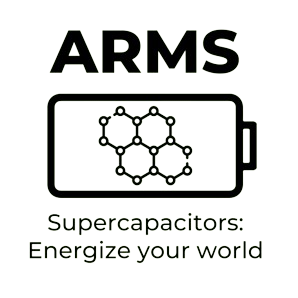
Atomic layer-coated gRaphene
electrodes for Micro-flexible and Structural supercapacitors
(ARMS)

News & Events
Beyond the Lab Coat - Lourdes Blanco Salgado
Did you dream of becoming a scientist as a child?
Lourdes Blanco Salgado from the ARMS project once imagined a life on stage as a singer, traveling the world. But curiosity had other plans. In our latest Behind The Lab Coat interview, she shares how a love for asking questions—and never settling for simple answers—led her to a career in science.

Building the future of energy storage: ARMS 5th Consortium Meeting
The ARMS consortium gathered for its 5th Consortium Meeting on October 23–24, 2025, hosted across two inspiring locations in Denmark: the Faculty of Engineering (TEK) at the University of Southern Denmark in Odense, and the innovation hub Innocell ApS in Svendborg.
Contact us
Project coordinator: Communications:
Matti Mäntysalo Inese Jansone
[email protected] [email protected]
This project, funded by the European Commission’s Horizon Europe programme, is part of the Graphene Flagship initiative
which works to advance technologies that rely on graphene and other 2D materials.


